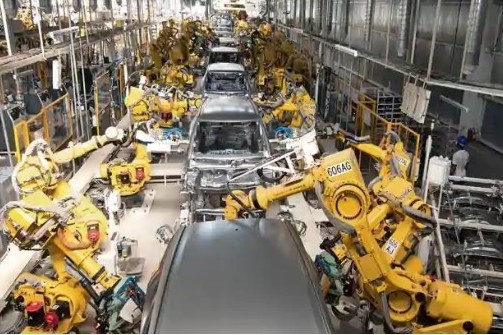New Delhi: As the shortage of semiconductors expected to linger on in the next fiscal as well, leading automakers like Tata Motors, Honda and Kia Motors are actively engaging with their supplier partners in order to carry on with stable production activities at their manufacturing plants in the country.
Semiconductors are silicon chips that cater to control and memory functions in products ranging from automobiles, computers and cellphones to various other electronic items.
The usage of semiconductors in the auto industry has gone up globally in recent times with new models coming with more and more electronic features such as Bluetooth connectivity and driver-assist, navigation and hybrid-electric systems.
Industry experts feel that enhanced demand for automobiles in the last few months has put pressure on the global supply chains leading to shortage.
When contacted, a Tata Motors spokesperson told PTI that some Covid-19 related challenges in the supply chain, including a global shortage of automotive embedded electronics, continue to impact the industry.
“Tata Motors is taking appropriate measures with all of its affected suppliers to mitigate the impact to production. These global industry challenges are likely to continue in FY22,” the spokesperson noted.
Honda Cars India Senior Vice-President and Director (Marketing and Sales) Rajesh Goel said the issue may lead to some production-related disruptions in the coming days.
“Yes, there is going to be an impact on our production volume in coming months due to the semiconductor-related parts shortage,” he noted.
The company in the meantime is engaging closely with its suppliers to assess the situation, Goel said.
“Depending on the supplies of a specific type of part which gets affected, some models will have more impact than others. We will respond by trying to adjust our production volume and replacing production models wherever possible to minimise the impact,” he added.
Kia Motors said it is closely monitoring the situation.
“We are aware of the auto industry’s potential supply disruption of select chips for automotive manufacturing. We are closely monitoring the situation and collaborating with our supplier partners to maintain stable production,” a company spokesperson said.
Toyota Kirloskar Motor (TKM) said it is currently working to confirm any possible impact.
Earlier, this month, US auto major Ford had said that the global shortage of semiconductors will impact its production in India in the coming months.
Ford India, which has two factories in Chennai (Tamil Nadu) and Sanand in Gujarat, expects the issue to continue for at least the first half of 2021.
In December, due to the semiconductor shortage issue supplied by Bosch Ltd, homegrown auto major Mahindra & Mahindra had also stated it was expecting reduction in production and sales volume at its automotive division and in its wholly-owned subsidiary in the last quarter of the current fiscal.
Bosch Ltd, a major supplier, had stated that its imports of micro-processors (semiconductors) have been hit following a global surge in demand from the consumer electronics industry.
At that time, auto components industry body ACMA had said it was still not clear as to what extent and for how long the shortage of semiconductors will impact vehicle production in India.
PTI
